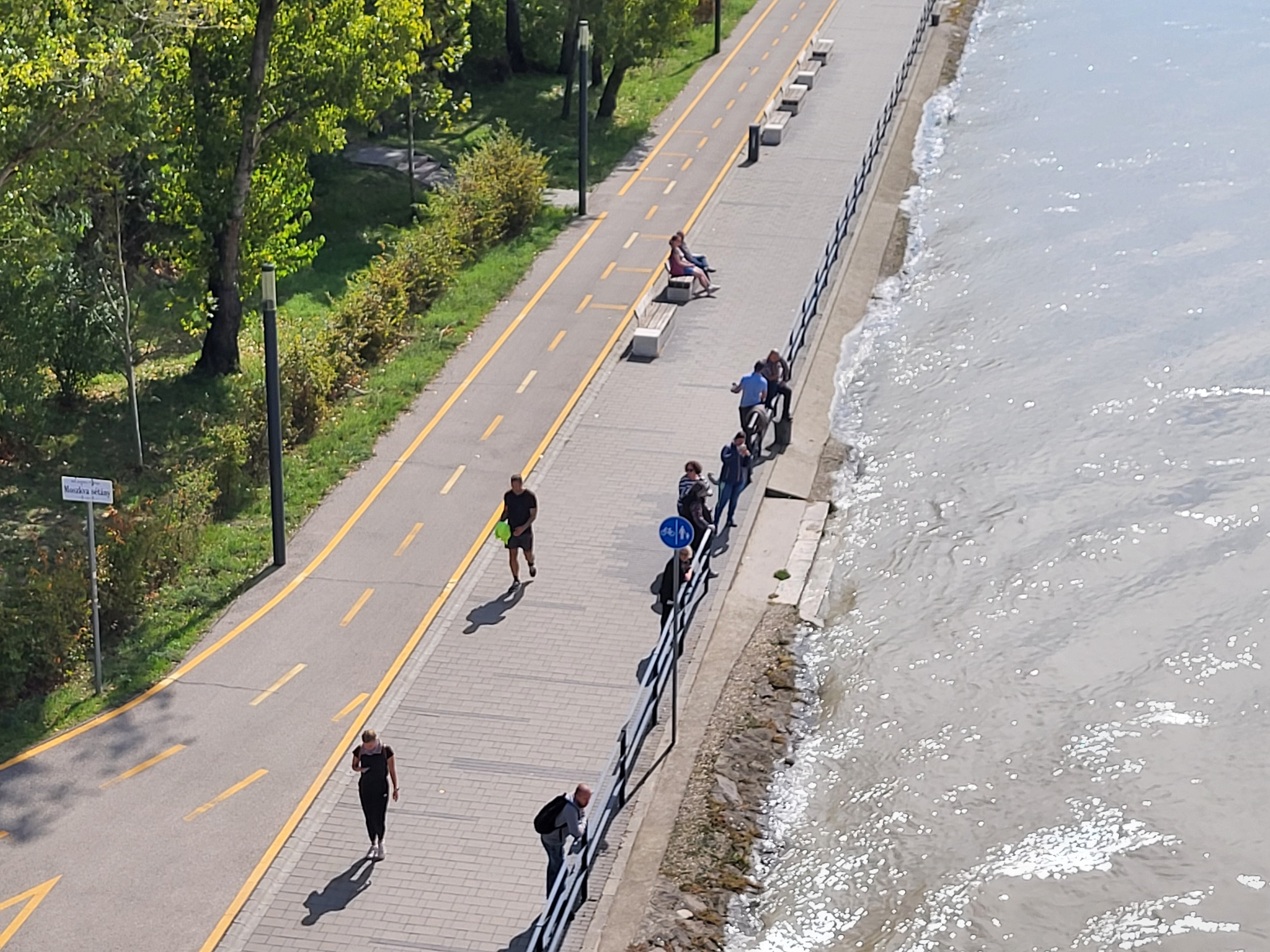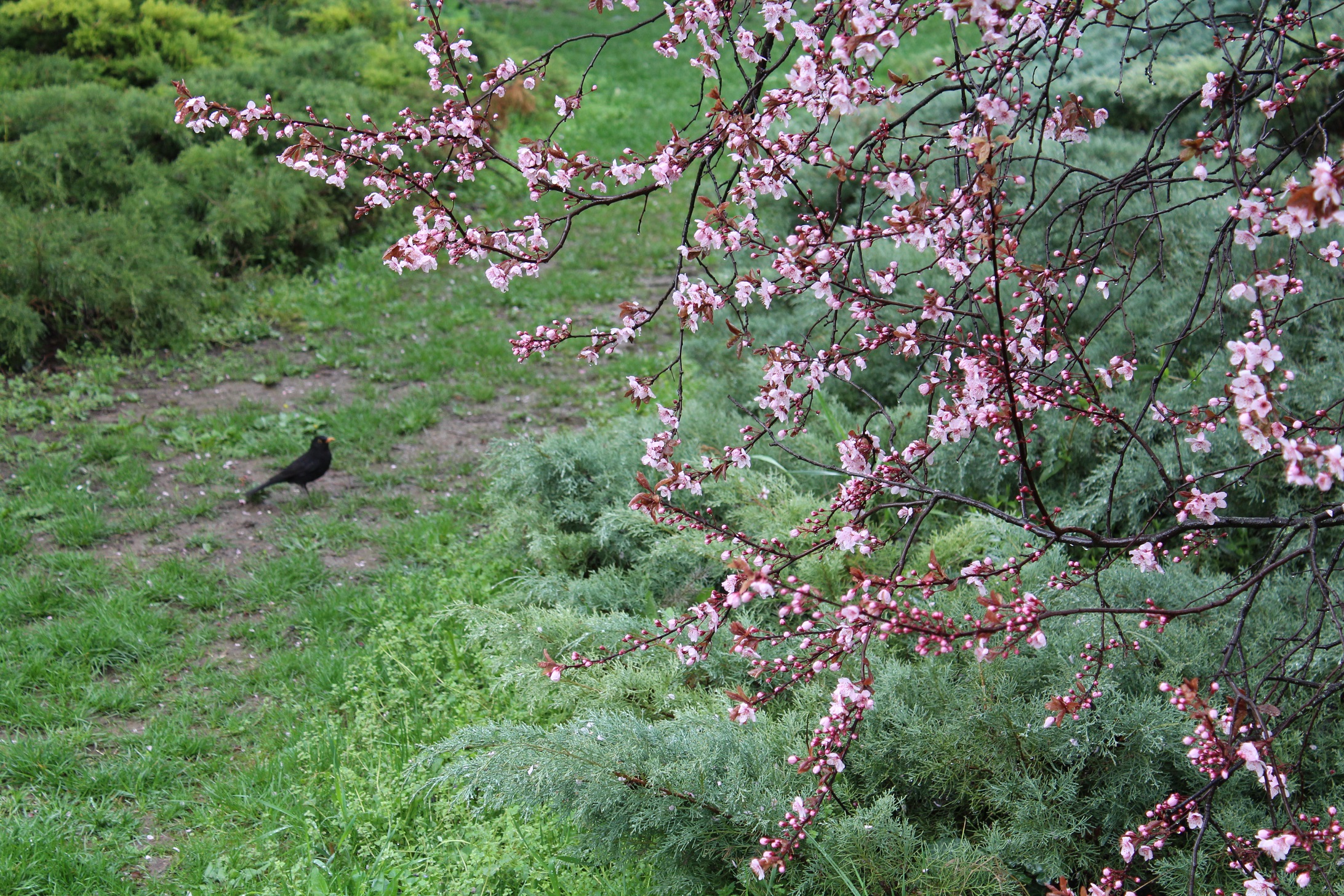.
Europe
Hungary
April 25, 2025 Hungary’s commercial property market poised for recovery, National Bank says. (Source: bne IntelliNews - Germany)
Estonia
26.04.2025 Estonia will 'significantly increase its defense spending to 5.4% of GDP' over the next four years, including the creation of a deep intelligence battalion, known as an ISTAR unit and the procurement of more ammunition and advanced weaponry - long-range systems capable of countering ballistic missiles, a robust drone force and US-made HIMARS rocket systems, 'enhancing its long-range strike potential', Merilo, commander of the Estonian Defense Forces (EDF) said. (Source: Anadolu Agency - Turkey)
Greece
26.04.2025 Greece plans to build a 150,000-strong active reservist force by 2030. The initiative, part of the government’s Agenda 2030 strategy for the armed forces, was presented by Defense Minister Dendias at the Hellenic Military Academy in Athens. The effort includes modernized retraining programs that will incorporate drones, simulators, and digital platforms. The training methods will be modeled on best practices from Israel and Finland, aiming to enhance combat readiness and ensure a more effective national defense posture. (Source: Anadolu Agency - Turkey)
Italy
Apr 27 2025 Last year, whistleblower Grusch told a Congressional hearing that the US possesses fully intact and pieces of "craft" of "non-human origin". And the former Air Force intelligence officer claimed to NewsNation that Italy had uncovered one of those UFOs in the 1930s. He claimed that the then-Pope Pius XII had "backchannelled" it to US president Roosevelt who "ended up scooping" up the craft. Bassett, executive director of the Paradigm Research Group said investigation was going to be needed into the claims. But it would prove the US government knew about extraterrestrial life long before the famous Roswell incident in 1947, he said. (Source: The U.S. Sun)
Ukraine
April 25, 2025, Friday In an April 25 interview with the BBC, Kyiv Mayor Klitschko has acknowledged that Ukraine might have to consider the temporary loss of some territory to Russia as a possible route to achieving peace. Klitschko is the first high-profile Ukrainian official to suggest publicly that temporary territorial concessions might be considered in the interest of peace. The suggestion aligns with reports of a U.S.-backed peace plan that includes formal recognition of Russian control over Crimea and implicit acknowledgment of its occupation of parts of Donetsk, Luhansk, Kherson, and Zaporizhzhia regions. (Source: Novinite - Bulgaria)
United Kingdom
25.04.2025 British Prime Minister Keir Starmer yesterday insisted that Ukraine must have full control over the terms of any peace agreement with Russia, firmly rejecting US President Trump’s proposals that could see Crimea formally recognized as Russian territory. He emphasized that any such move would breach international law and reward aggression. Former UK Prime Minister Boris Johnson also weighed in. (Source: Anadolu Agency - Turkey)
Asia
China
April 26 2025 China has seized disputed reef Sandy Cay, another previously unoccupied land feature - just a sand bank measuring little more than 200 square metres - in the South China Sea. It is just kilometres from the Philippines’ most important military outpost at Thitu Island, raising the risk of a new stand-off between the two rival claimants. The Philippine coastguard has been operating a monitoring base on Thitu since late 2023, but Manila is now upgrading a runway and other infrastructure on the island. (Source: Financial Times - United Kingdom)
India
(25 April 2025) Kashmir killings. Islamabad retaliates after New Delhi downgraded diplomatic relations over shooting of tourists in disputed region. Police in Jammu and Kashmir said yesterday that two of the three suspects in the Pahalgam massacre were Pakistani nationals. In a 'Wanted' notice published online, the police described the men as 'LeT terrorists', a reference to Pakistan-based Lashkar-e-Tayyaba, which was responsible for the killing of 175 people in Mumbai in 2008. India has ordered the closing of its only border crossing with Pakistan, the expulsion of military advisers from Pakistan’s diplomatic missions in India, the withdrawal of its own advisers from Pakistan, and a reduction in the number of diplomats in each country to 30 from 55. Its suspension of participation in the Indus Waters Treaty was an unprecedented measure that could be deeply damaging to farming in Pakistan at the start of the sowing season of a country mired in a deep economic crisis. Pakistan has closed its airspace to India’s airlines, said it would suspend a 1972 peace treaty with its larger neighbour, and warned that any diversion of shared river waters would be “considered an act of war'. The Indus Waters Treaty is vital to Pakistan because it guarantees access to the three western rivers of the Indus basin - its main source of water for agriculture, power, and daily life. (Source: Financial Times - United Kingdom)
Iran
(Sunday), April 27, 2025 A massive explosion and fire rocked a port yesterday in southern Iran purportedly linked to a shipment of a chemical ingredient used to make missile propellant, killing 25 people and injuring around 800 others. Social media footage of the explosion on Saturday at Shahid Rajaei saw reddish-hued smoke rising from the fire just before the detonation. That suggests a chemical compound being involved in the blast, like in the Beirut explosion. Shahid Rajaei port in Hormozgan province is about 1,050 kilometers southeast of Iran’s capital, Tehran, on the Strait of Hormuz, the narrow mouth of the Persian Gulf through which 20% of all oil traded passes. (Source: AP - U.S.)
4/26/2025 The U.S. and Iran approached the nuclear talks today at odds over whether Tehran can continue to enrich uranium. The talks, which lasted more than four hours ended with major disagreements and a pledge to meet again soon in Europe. The discussions included Iranian Foreign Minister Araghchi and U.S. special envoy Witkoff, who flew to Oman following a yesterday meeting in Moscow with Russian President Putin. As in the first two rounds, there were indirect discussions between the U.S. and Iran that were mediated by the Omanis, as well as direct interaction between the top negotiators. Secretary of State Rubio said ahead of the talks that Iran could have a civilian nuclear program as long as it uses imported nuclear fuel. Iran insists its nuclear program is peaceful, and that it has the right to enrich its own uranium. The current talks also includes other disagreements, such as the Trump’s administration’s demands that an accord cover Iran’s missile program. The Obama administration agreed to let Iran continue enriching its own fuel, which paved the way to a nuclear deal in 2015 aimed at restraining weapons development. That accord initially allowed Tehran to produce uranium enriched to 3.67% for civilian purposes and allowed Iran to eventually achieve enrichment levels well beyond that. President Trump pulled out of Obama’s nuclear deal during his first term. Iran is now producing 60% high-enriched uranium, the only country without nuclear weapons to do so. That material can be swiftly converted into the 90%-grade material needed for a bomb. Iran is producing enough enriched uranium needed for a single nuclear weapon each month and would need only a week or two to turn it into weapons-grade material, U.S. officials say. The U.S. technical team was led by Anton, the head of the State Department’s office of policy planning who served as a spokesman for the National Security Council during Trump’s first administration. He faced veteran Iranian nuclear negotiators Takht-Ravanchi and Gharibabadi. The next round may include an expert from the International Atomic Energy Agency, Araghchi said. The agency, which is planning to send a team to Iran in coming days, has asked Tehran to explain the presence of tunnels around the Natanz nuclear facility, which houses centrifuges used to enrich uranium. On Thursday, the Washington-based Institute for Science and International Security released satellite images of the site showing a new tunnel as well as a new security perimeter. Trump has given a deadline of two months to conclude a pact and has repeatedly threatened to turn to military force if Iran balks at a deal. As the talks were ongoing in Oman, a blast today ripped through Bandar Abbas, Iran’s biggest commercial port, killing at least five and wounding at least 516. In the past two months, the facility received shipments of a missile propellant ingredient from China, according to U.S. officials and shipping trackers. (Source: MSN / WSJ = U.S.)
Kashmir
26 April 2025 Indian and Pakistani troops have traded gunfire across the highly militarised frontier in Kashmir for a second day as tensions flare between the nuclear-armed rivals. The exchange of fire came after a deadly attack took the lives of 26 people in what India claims was a Pakistan-backed terror attack. Pakistan denies India's charge. The assault near the resort town of Pahalgam in India-controlled Kashmir was claimed by a previously unknown militant group calling itself the Kashmir Resistance. Most of those killed were Indian tourists. Troops detonated explosives in the family homes of at least three suspected militants. Police officials said they detained and questioned at least 1,500 people. (Source: Express - United Kingdom)
Pakistan
Friday 25 April 2025 Defence minister Asif told his country would respond in kind to any attack by New Delhi. It comes amid heightened tensions between the two nuclear-armed countries following a shooting that left 26 tourists dead. /Video/ (Source: Sky News - United Kingdom)
Syria
27.04.2025 German Interior Minister Faeser and Austrian Interior Minister Karner traveled to Damascus today, to discuss the voluntary return of Syrian refugees with Syrian Interior Minister Hattab. Faeser was stating that refugees who have successfully integrated into German society and established new lives should be allowed to stay. Those involved in criminal activity or linked to extremist groups should be swiftly deported. As of the end of March 2025, there are 968,899 Syrian nationals living in Germany. Between 2015 and 2023, 163,170 Syrians obtained German citizenship. (Source: Anadolu Agency - Turkey)
Globalization
April 26, 2025 Everywhere one looks today, the world is on fire. All eyes are currently fixed on the ongoing tensions between the United States, Israel, and Iran. On the periphery of that budding conflict, though, are two other important potential hotspots through which a major conflict might erupt. Those are the India-Pakistan rivalry, which is spiraling in the aftermath of a horrific terrorist attack, and the standoff between the United States, the Philippines, and the People’s Republic of China in the South China Sea (SCS). And in both instances, Beijing is meddling at unprecedented levels. Terrorism, water wars, and border clashes are now risking a very real war between nuclear-armed Pakistan and nuclear-armed India - with neighboring China potentially in a position to exploit the instability for their own gain. A bloody jihadist terror attack in an area of Kashmir known as Pahalgam left 26 Indian citizens dead. Indian leaders demanded that neighboring Pakistan, a fountainhead for terrorism on the subcontinent, conduct sweeping counterterrorism investigations to bring to justice the perpetrators - and those within Pakistan who may have supported them. Islamabad responded by arguing that India’s attempts to link the Pahalgam attack with Pakistan are frivolous, devoid of rationality, and defeat logic. The Pakistani government then added: ’Pakistan and its armed forces remain fully capable and prepared to defend its sovereignty and territorial integrity.’ India replied by suspending the Indus Waters Treaty (IWT), cutting off Pakistan’s access to the vital water flows of the Indus River - and perhaps laying the groundwork for another war. The Indus Waters Treaty signed on September 16, 1960 after nine years of hard negotiations between recalcitrant enemies in Pakistan and India, has 12 articles and eight annexures. One of the key provisions in the IWT is that India would make available for unrestricted use by Pakistan the waters of the Indus, Jhelum, and Chenab rivers of the west. Pakistan has an ace card to play: its strong alliance with China, which controls access to multiple rivers flowing into India. China could threaten India with cutting off water access to some of the rivers under Chinese control going into India, such as the Galwan River. A hidden undercurrent of the 2020 border clashes between India and China was over control of water rights along the Tibetan Plateau. To the east of this conflict, in which China may or may not be exerting malign influence, is the Luzon Strait between the Philippines and Taiwan. The Strait of Luzon is a narrow waterway separating the southernmost tip of Taiwan from the northern Philippines. For China’s encirclement strategy of democratic Taiwan to work, Beijing needs control over the Luzon Strait. The United States Marine Corps is deploying its new NMESIS (Navy-Marine Expeditionary Ship Interdiction System) anti-ship missile platform to overlook that vitally important strait. The US-made NMESIS platform threatens to choke up the Luzon Strait, at least for a period of time. The idea is to deter China’s People’s Liberation Army Navy (PLAN) from destabilizing the South China Sea - specifically to stop China from threatening their neighbors in the Philippines, as it has been doing for years. As the Marines were installing the NMESIS platform, they encountered a unique sight: the PLAN’s Shandong aircraft carrier task group transiting through the narrow waterways. China’s flotilla passed within the range of NMESIS and took up station just east of the Philippines once they successfully passed through the strait. The Shandong’s transit through the Luzon Strait amounted to a reminder from Chinese President Xi to U.S. President Trump that the Chinese retain the real advantages in the region, not the United States - which is weaker militarily than it has been in decades. The American military power that remains, though mighty, is stretched to its limits, whereas China’s is concentrated in one region. Beyond the NMESIS platform, the Americans have only one aircraft carrier, the USS Nimitz - the namesake of its class, and thus also the oldest - loitering around the Pacific. The bulk of the U.S. Navy’s fleet is mired in the Middle East. The Ukraine war is potentially one misstep away from drawing in the great powers. The Iran crisis threatens to do the same. Now the Indian subcontinent is aflame. These conflicts have all sapped America’s strength, drawing the attention of U.S. troops and U.S. diplomats away from the vital Indo-Pacific theater. By lighting - or pouring fuel on - geopolitical brush fires around the world, the Chinese have guaranteed the Americans will remain off-balance in Asia when the time comes to strike. (Source: The National Interest - U.S.)
By Weichert, a Senior National Security Editor at The National Interest, who consults regularly with various government institutions and private organizations on geopolitical issues. His books include Winning Space: How America Remains a Superpower; Biohacked: China’s Race to Control Life, and The Shadow War: Iran’s Quest for Supremacy. His newest book: A Disaster of Our Own Making: How the West Lost Ukraine
North America
Canada
April 27, 2025 11 killed as a vehicle plows into a Filipino street festival in Vancouver. (Source: AP - U.S.)








